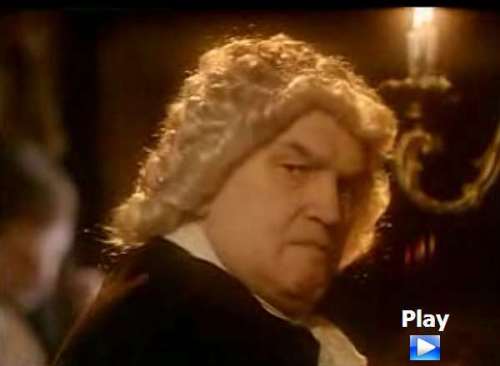Johann Sebastian Bach composed three cantata in honour of St. John the Baptist. Cantata 167 (1723) – a tenor aria plus a duet for soprano and alto, with a chorale finale. Cantata 7, (1724), with a fantastic opening chorus and a 12 movimento marvellous Cantata BWV 30 (1738) a parody of from a previous secular cantata Angenehmes Wiederau.
In truth this latter (named BWV 30a) was a laudatory cantata composed to celebrate J. C. Hennicke’s appointment as high official of Wiederau. Thus Bach’s BWV 30 has been re-written – a practice quite diffused and accepted in those years – in order to fit as cantata for June 24th feast of St. John. Yet, in spite of its derived origin (numerous Bach’s parodies are nevertheless worthy e.g. Weihnachtsoratorium BWV 248 or the h-Moll-Messe BWV 232), this cantata retains all its fascination and suavity.
Basically this masterpiece, based on the texts of Christian Friedrich Henrici (Picander), Johann Olearius and on Salm 120.5, is divided into two parts and 12 movements with a joyous opening chorus followed by amazing arias and recitatives the altogether effect is a beautiful expressions of worship.
- Coro: “Freue dich, erlöste Schar” for choir, flauti traversi, oboes, strings, and continuo.
- Recitativo: “Wir haben Rast” for bass and continuo.
- Aria: “Gelobet sei Gott, gelobet sein Name” for bass, strings, and continuo.
- Recitativo: “Der Herold kömmt und meldt den König an” for altus and continuo.
- Aria: “Kommt, ihr angefochtnen Sünder” for flauto traverso, strings, and continuo.
- Chorale: “Eine Stimme lässt sich hören” for choir and orchestral tutti colle parti.
- Recitativo: “So bist du denn, mein Heil, bedacht” for bass, oboes and continuo.
- Aria: “Ich will nun hassen” for bass, oboe d’amore, violino solo, strings, and continuo.
- Recitativo: “Und obwohl sonst der Unbestand” for soprano and continuo.
- Aria: “Eilt, ihr Stunden, kommt herbei” for soprano, violins, and continuo.
- Recitativo: “Geduld, der angenehme Tag” for tenor, and continuo.
- Coro: “Freude dich, geheilgte Schar” for choir, orchestral tutti, and continuo.
The gaiety and joyful tones are justified by the central praiseworthy themes of John and his father Zachary. Thus the choruses, the bass aria and even the recitative are sublime expressions of praise.
Enjoy the above wonderful video where Magdalena Kožená, soprano directed by “Bach himself” 🙂 sings Aria “Kommt, ihr angefochtnen Sünder” – it is like a enchanting step back into the past:
Kommt, ihr angefochtnen Sünder,
Eilt und lauft, ihr Adamskinder,
Euer Heiland ruft und schreit!
Kommet, ihr verirrten Schafe,
Stehet auf vom Sündenschlafe,
Denn itzt ist die Gnadenzeit!
[Come, ye sorely tempted sinners,
Haste and run, O Adam’s children,
This your Savior calls and cries!
Come ye, all ye errant sheep now,
Rise ye up from sin-filled slumber,
For now is the hour of grace!]



Leave a comment